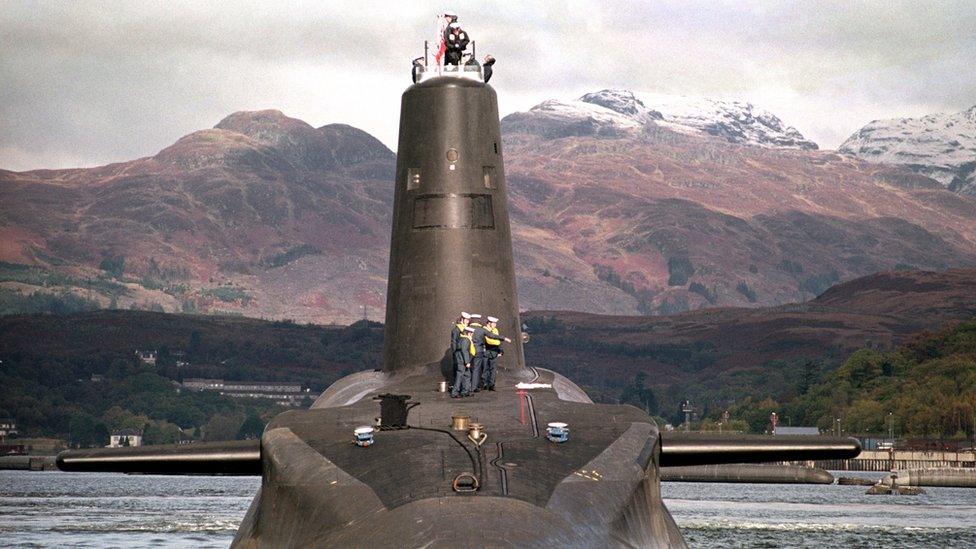Defence spending: 'Thousands more jobs will be cut'
- Published
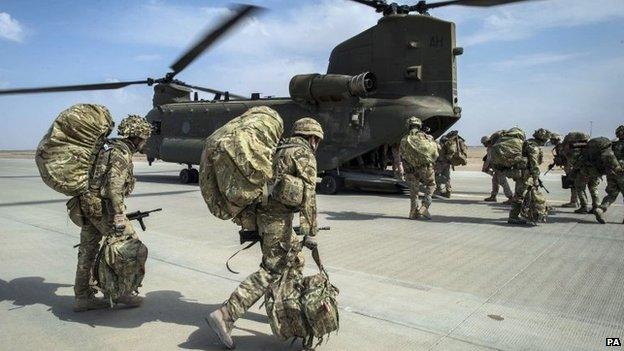
Up to 30,000 more military personnel could lose their jobs whoever wins the general election, a defence think tank has warned.
The Royal United Services Institute (Rusi) said it was inevitable the UK's defence spending would drop below the Nato target of 2% of GDP.
Its report, external says the combined strength of the Army, Navy and RAF could fall from 145,000 to 115,000 by 2020.
David Cameron said further reductions in forces were not necessary.
Neither the Conservatives nor Labour have committed to the Nato target.
Britain currently just meets the 2% target, but the current government is committed only to continuing that until the end of this Parliament.
'Pessimistic but plausible'
Rusi's findings are likely to increase the pressure on the prime minister from Conservative MPs who want a manifesto commitment to maintain the Nato target.
However, the report explains that, with GDP projected to grow over the next five years, it means defence spending would also need to increase significantly in order to keep pace with the 2% threshold.
"In the context of wider austerity in public spending, such an increase is not plausible," the paper states.
"The government is not yet convinced that strategic security risks are high enough to justify an exemption for defence from austerity."
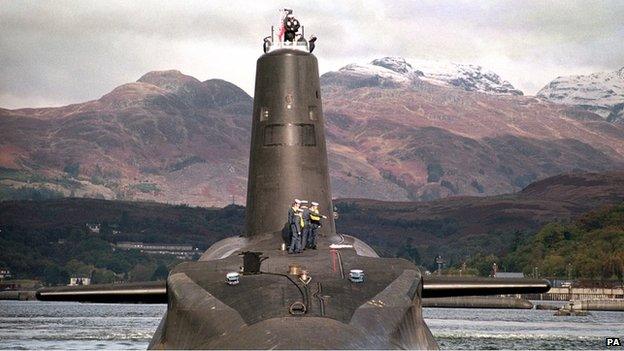
Equipment costs are continuing to rise as cuts are made to personnel numbers
Under the "optimistic scenario" whereby defence spending was ringfenced alongside health and schools, the paper said there would still have to be cutbacks of around 15,000 across the three services.
Under the report's "most pessimistic, but still plausible, scenario", up to 30,000 jobs could be axed.
This would be on top of the thousands of jobs that have already been axed since a restructuring of the armed forces began in 2010.
'Reputational cost'
Report author Malcolm Chalmers said: "Over the last five years personnel have taken most of the savings of the defence budget, and looking forward the equipment budget has got so many demands on it, not least from the programme to replace the submarines that carry our nuclear deterrent but also in relation to the aircraft carrier."
He told BBC Radio 4's the World at One programme that a 2% commitment was unrealistic because it would involve giving defence a higher budget priority than the NHS and education.
Mr Chalmers added that at the last Nato summit in September there was a "disconnect" between what Mr Cameron was saying would be spent on defence and what the Treasury was saying in any of its documents.
He said: "I think there will be a significant reputational cost for the UK, if and when it falls below the 2%.
"There's no point in hiding that fact and that cost will be particularly with the United States.
"Even if we protect the defence budget and fall below 2% there will still be a reputational cost and a difficult conversation to be had between the prime minister and the president."

World's biggest defence budgets
US - $682bn (£452bn)
China - $166bn (£110bn)
Russia - $90bn (£60bn)
UK - $60bn (£40bn)
Japan - $59bn (£39bn)
France - $58bn (£38bn)
Source: Stockholm International Peace Research Institute (SIPRI)

David Cameron said: "The equipment budget in defence over the next 10 years, will grow in real terms under a Conservative government making sure that vital equipment we have ordered - the aircraft carriers, the frigates, the destroyers, the hunter killer submarines, that all of that can be delivered.
"And we have also said that we do not have to see further reductions in the regular forces.
"But again I would say you can't have strong defence without a strong economy."
Conservative MP and former defence minister Sir Gerald Howarth said the government needed to get its priorities straight.
He said: "I think that there is a growing campaign not just for 2%, but for 2% to be the minimum.
"Given the resurgent Russia, which has increased its defence expenditure by 50% in the last five years - this is a dangerous world, this is not a time to be cutting our defences in any case."
"If you ask me where I would say you make the savings - you make it in overseas aid," he said.
The Ministry of Defence said the full-time strength of the Armed Forces stood at 145,690 at the start of this year.
In January 2010, before the restructure, the equivalent figure was 176,600.
- Published2 March 2015
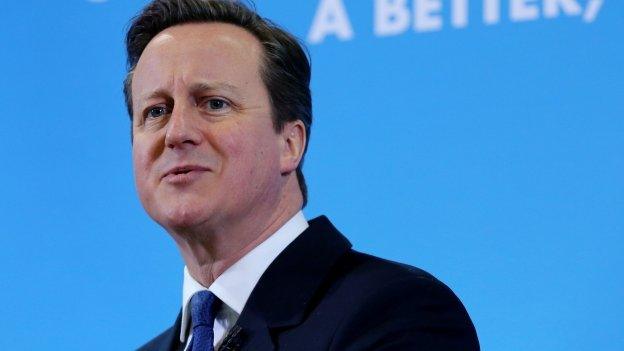
- Published2 March 2015
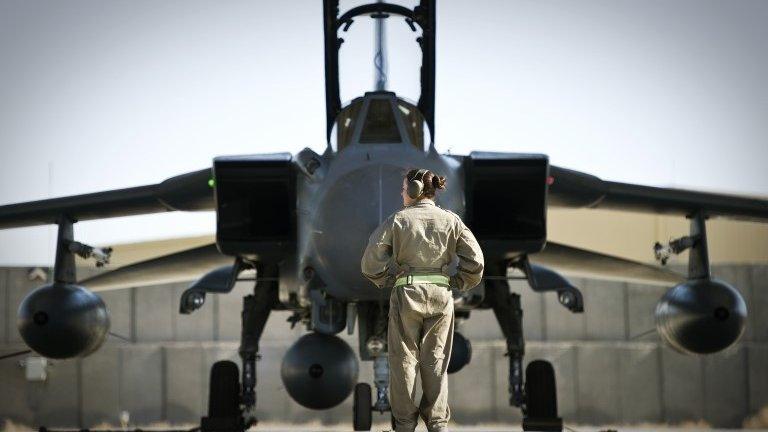
- Published26 February 2015
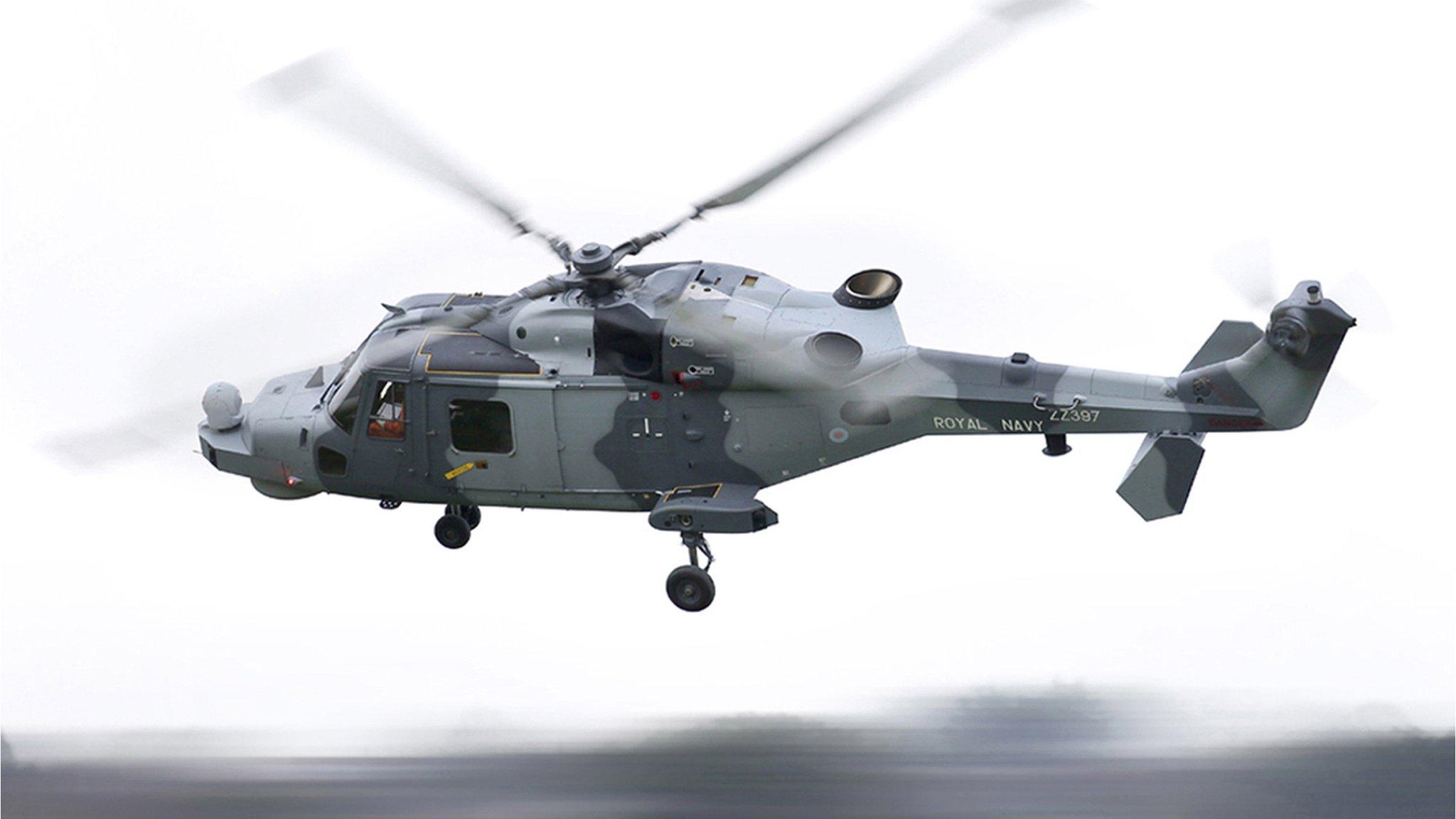
- Published24 February 2014
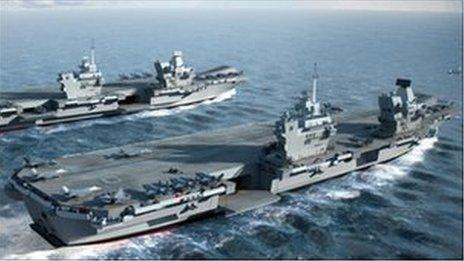
- Published27 March 2014
